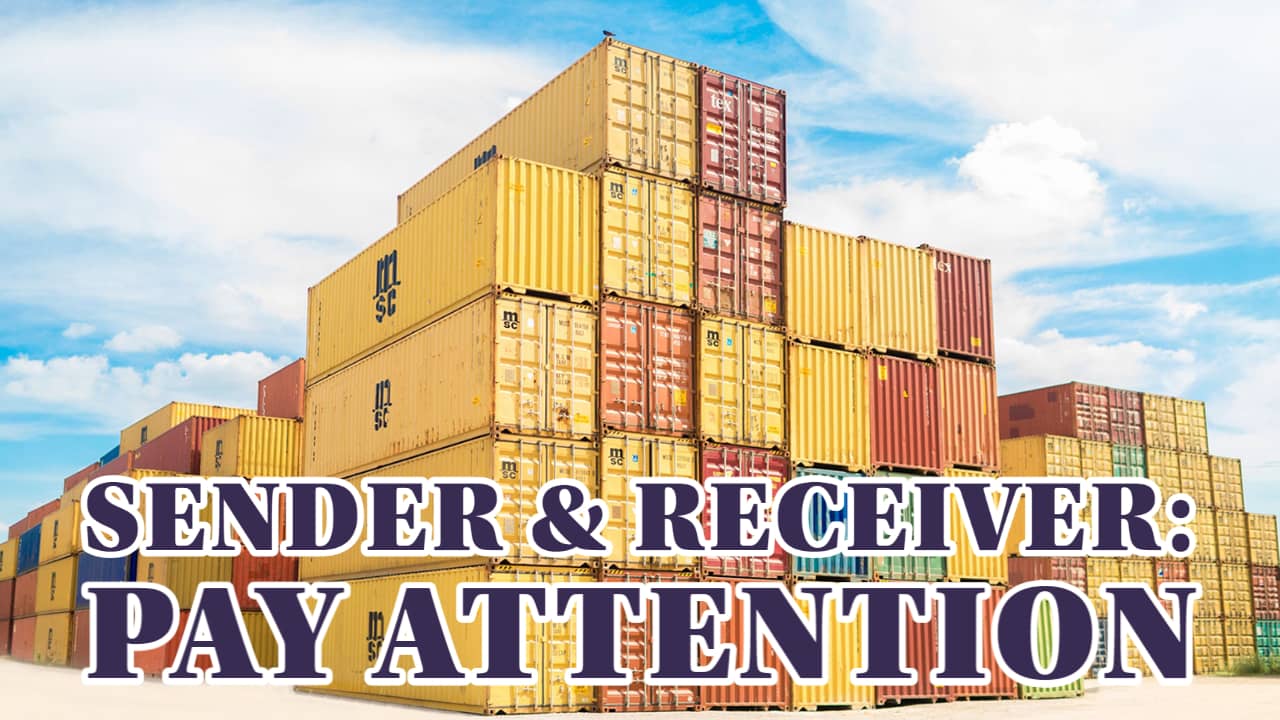
Issues With Abandoned Shipping Containers – You May Be Liable!
3-minute read
Freight importers & exporters should be worried about the cost of containers abandoned overseas for which they may be liable and how to implement safeguards to prevent this situation occurring.
BIFA (British International Freight Association) says that one of the most frequent questions it receives regarding problems on maritime shipments is about abandoned and unclaimed containers sitting in overseas ports.
The trade association says that often its member company (e.g. consignor/consignee on the Bill of Lading or any other company that made the booking) has closed the file with the goods shipped and the carriage paid and is then surprised to receive a demand for storage and quay charges from the shipping line.
Often, says BIFA, the member states that it is “only an agent”, or that its name “is not on the bill of lading”, and the trade association is reminding members that whilst in general terms anyone who undertakes a task for another could be called an agent, in law it is not what you say you are, but what you do that defines the role you perform.
BIFA Director General, Robert Keen explains: “Although some BIFA members may act as an agent from time to time, the majority of transactions that occur are where a freight forwarder buys space from a shipping line or airline at one price and sells from its own tariff.
In this scenario, the freight forwarder is a principal. If there is a problem later, for example, if the goods are not collected at the destination, then the shipping line will look to the freight forwarder for quay rent, etc, as the party it contracted with.”
Another issue highlighted by BIFA is where goods are sitting overseas and neither the shipper nor the consignee can be contacted, the forwarder cannot simply abandon the cargo.
Keen adds: “The shipping line will sometimes take a lien if the commodity is something that can be sold-on easily, but many commodities need special handling and the shipping line will look to the contracting party, the forwarder, for payment of such charges.
“It is impossible to safeguard against getting into this sort of situation if the shipping file has been closed and the consignee does not take delivery at destination. Under the BIFA Standard Trading Conditions, the customer has indemnified the forwarder and is liable for such costs.
However, if the customer has ceased trading, or simply disappeared without a trace, the forwarder may still find itself liable for the unpaid charges.”
BIFA’s advice is that if its members have any concerns regarding the standing of their customer, they implement office procedures to close files or keep a log of when goods have been discharged overseas.
Keen concludes: “Most of the enquiries that we have received on this matter involve scrap materials, personal effects and charity goods, all of which tend to be low value.
In regards to scrap materials, members should note that countries such as China are tightening up regulations, which may lead to an increased amount of such commodities being abandoned.”
P.S. Easy Freight Ltd helps New Zealand importers & exporters to save money on international freight and reduce mistakes by guiding how to comply with Customs and biosecurity rules.
➔ Contact us now to learn how we can assist you.
